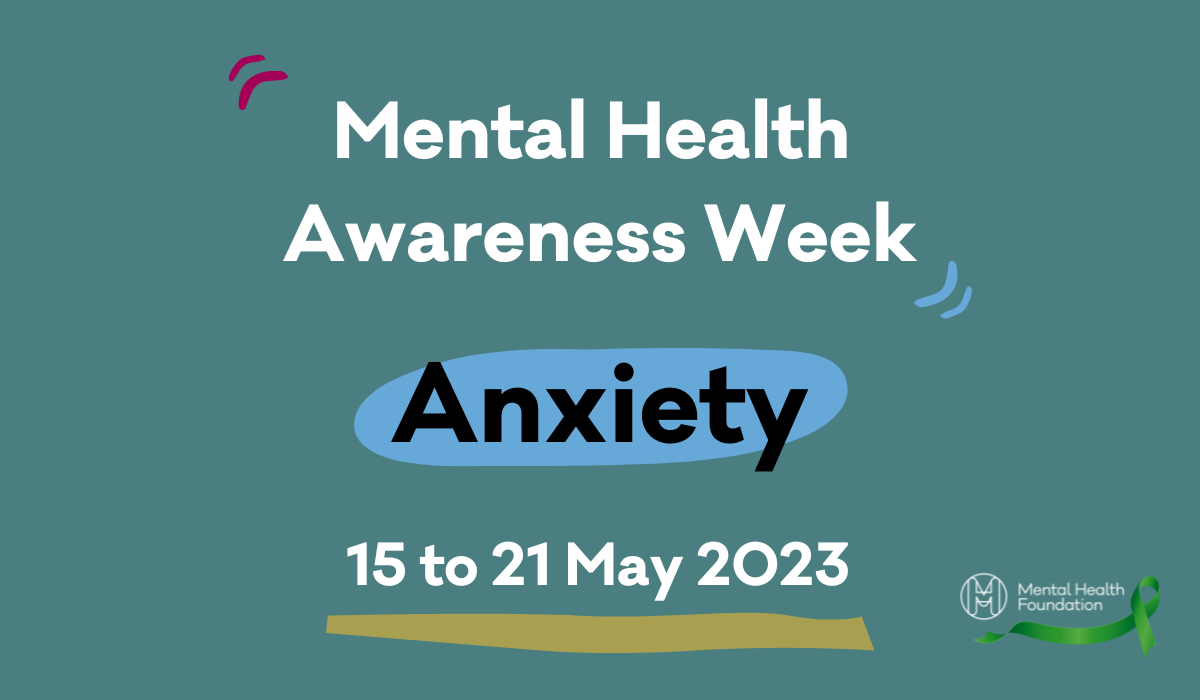The theme of this year’s mental health awareness week is anxiety, one of the most common mental health problems.
Anxiety is a natural response to the challenging world we live in and can be brought on by many things, including stress at work. However, a recent study found that a quarter of adults said they felt so anxious that it stopped them from doing the things they want to do some or all of the time.[1]
Understanding the signs of anxiety is a great place to when it comes to helping ourselves and others during challenging times.
Some of the key symptoms of anxiety include:
- A persistent sense of worry, apprehension, dread or hopelessness
- Feeling fearful, paranoid and tense
- Anger and impatience
- Difficulty concentrating
- Panic attacks
- Sweating
- Sleep issues
- Fidgeting
- Shortness of breath
- Increased heart rate
- Muscle tension
- Fatigue
In a workplace setting, feelings of anxiety may prevent someone from performing to the best of their ability or doing their job all together. By raising awareness of the symptoms of anxiety and some of the ways that can help someone manage it on a daily basis, it can alleviate some of the pressures and break the stigma around asking for help.
Dealing with anxiety in the moment
- Focus on breathing
In anxious situations, bringing our attention inwards and focusing on things we can control, such as our breathing, can help regulate our nervous system. It can take a bit of practise but closing your eyes, and taking long breaths in through the nose and out through mouth can help to bring you back into the present moment, and feel calmer.
- Take a break
If something is causing you to feel anxious, try stepping away from it for a moment. This might be a work task, so getting some fresh air or focusing on something else temporarily or it might be a social situation. Giving yourself physical and mental distance away from the cause will help alleviate those tensions momentarily and you can work out the best cause of action to tackle it on your return.
- Challenge the thoughts
Sometimes our own thoughts can be the cause of anxiety. You may find yourself comparing yourself to others at work or worrying what your colleagues or manager thinks of you. Often when we get into a pattern of negative thinking, it can spiral and make us feel much worse. Noticing when you are doing this is an important step as from here, you can begin to challenge those negative thoughts. Ask yourself what the facts tell you, or what evidence you have to support your critical beliefs about yourself.
- Write things down
Anxiety can make our minds go into overdrive so getting our thoughts out on paper can help calm some of that noise. Writing things down is also a great help when it comes to prioritising things, whether it’s writing out a to-do list for your work day or simply some reminders or positive affirmations that you can turn to in those more stressful moments. What feels like a big deal in our head can often feel more manageable when written down and broken down into smaller tasks.
- Prioritise self-care
Looking after ourselves physically and mentally can help reduce feelings of anxiety overall. This includes eating well most of the time, ensuring you get enough rest, releasing endorphins through regular exercise and getting out into nature more often. Notice how these things make you feel compared to when you don’t do them regularly and it will become easier to make them fit into your daily routine.
If you’ve got any tips on managing anxiety, or if your workplace has an innovative way of supporting its staff with their mental health then we’d love to hear from you. Comment on our socials or message us directly!
[1] https://www.mentalhealth.org.uk/our-work/public-engagement/mental-health-awareness-week

